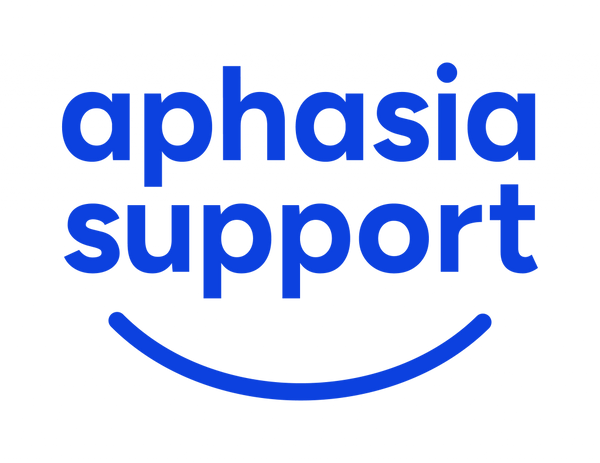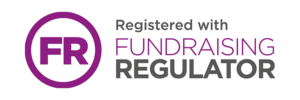Meet Izzy: How volunteering led to a dream career

In this post, we meet Izzy, whose curiosity about speech and language therapy grew into a passionate career path - shaped in part by her experience volunteering with Aphasia Support.
Throughout her time as a volunteer, Izzy dedicated herself to providing outstanding support to individuals with Aphasia and their carers. From helping to run our Harrogate Aphasia Cafe, to delivering personalised 1:1 sessions - Izzy’s compassion and commitment brought light and laughter, helped others regain their communication skills, and gave her the experience and confidence to pursue a career in speech and language therapy.
Izzy’s story is one of growth, learning, and inspiration - reflecting on all the special moments that led her to her dream role.
Q&A with Izzy
What inspired you to pursue a career in Speech and Language Therapy?
I always knew I wanted a job working closely with people. I had heard about Speech and Language Therapy (SLT) and I was curious about it but wanted to find out more. A friend put me in touch with a Speech and Language Therapist who I regularly spoke with; her infectious passion for SLT inspired me to do more research. I signed up to a workshop in Leeds where I learnt more about the career. The talk was very insightful and confirmed my decision to apply for the SLT course. I am very thankful to the people that advocated for SLT and inspired me to take the leap!
How did you come across the opportunity to join Aphasia Support as a volunteer?
I bumped into someone I know who has Aphasia, and they told me about the start-up of Aphasia Support in the Harrogate area. I researched the charity and felt as though I’d found a gem, so I took the opportunity to get involved and sign up as a volunteer!
Can you describe the difference between your role at the Harrogate Aphasia Cafe, and your role providing personalised 1:1 support?
The Aphasia Cafe role requires volunteers to support individuals to participate in conversation and activities such as themed quizzes. Conversation can vary from discussing the recent news reports, to more spontaneous conversation where you get to know the individuals. Communication may be supported by simplifying verbal language, using maps to identify and discuss important places, or writing down key words to help individuals understand and express themselves easier. This role is an opportunity to build individuals’ confidence and participation in interactions, whilst providing a supportive listening ear to the lived experiences of people with Aphasia.
The 1:1 personalised support involves delivering 12 sessions working towards your client’s SLT goals using iPad therapy. Firstly, you will receive training to help you feel comfortable in navigating the therapy apps. You will have access to your client’s personalised report with all the relevant information including their diagnosis, abilities, difficulties, and a list of assigned therapy app activities you will be supporting the client with. Sessions may involve directing your client to the assigned activities, adjusting the difficulty level based on their performance, providing feedback, and setting them homework tasks to practise. After the session you write up a client report, stating what you did in the session, their strengths/difficulties, and a brief plan for next session. Since this role is more independent, lots of volunteer support is provided, including meetings with the Speech and Language Therapist to discuss how your sessions are going, seek advice, or raise any concerns.
What skills or insights from your studies or life experience have been most helpful?
There is so much power in the ability to adapt your communication! This is a skill I regularly draw on when interacting with different individuals of varying communication preferences and abilities. It’s not only a key skill as an Aphasia Support volunteer, but highly transferable to other aspects of life. For example, whilst travelling in Asia I often encountered language barriers, so I had to find creative ways to communicate– using technology such as google maps, the internet, and photos, as well as simplifying my language, speaking slowly and clearly, and using gesture and facial expressions. These strategies enabled me to build meaningful, invaluable connections with people even when verbal communication was limited. Such experiences gave me a deeper appreciation for how complex communication is – it truly extends far beyond words. Self-reflection has also been a fundamental skill, thinking about what went well and I can adapt my communication better next time. I find I am learning something new every day, especially when interacting with individuals with Aphasia.
How has building a connection with the people you've supported impacted you personally or professionally?
Building relationships and connections is what it’s all about really. Living with Aphasia may have a huge impact on an individual’s relationships, and confidence to form new connections. Whilst volunteering at the Aphasia Cafe, I had the pleasure in seeing individuals grow in confidence and form friendships amongst the group. The people I have supported inspired me too, from being vulnerable by sharing their personal experiences, to their resilience and motivation to achieve their SLT goals.
What have you learned about Aphasia and communication through your time volunteering? Were there any challenges?
One main takeaway for me is that no person with Aphasia is the same, therefore, a highly personalised approach is needed for each person. Aphasia is not just about the loss of language—it’s about how that loss impacts their identity, relationships, confidence, and independence. The severity of the Aphasia does not necessarily determine the level of impact it has on the person, so it’s important not to make any assumptions.
The individuals I supported really shone a light on just how difficult it is for them to ‘keep up’ with everyday conversations. The world we live in can sometimes make communication feel rushed—speech moves quickly, and conversation topics shift frequently. It was a reminder that we all need to be more mindful and slow our communication down, making daily interactions more accessible for people with communication difficulties.
There were definitely challenges during my volunteering. Initially, I held back from asking questions to individuals with more severe expressive difficulties, as I didn’t want to cause them frustration. Over time, I became more comfortable with these moments and came to understand that some level of frustration is a natural part of communication for people with Aphasia. From getting to know the individuals, I began to feel more confident to ask questions and adapt my communication depending on the person. This challenge taught me that simply being present can make a real difference—giving someone the space and understanding they need, but also by staying calm, which allowed me to take initiative and respond thoughtfully in interactions.
What did you enjoy most about this experience, and what made it meaningful for you?
The 1:1 volunteering role provided me with my first experience planning and delivering SLT sessions independently. This enabled me to build a strong rapport with both my clients, making the process feel more natural and meaningful. I loved working with the clients collaboratively, from deciding on a specific goal together, to actively working on achieving their goal, celebrating every effort and improvement along the way. As for the Aphasia Cafe, I absolutely loved getting to know everyone and hearing their stories, including the other volunteers. The group offers a safe space for people with Aphasia to share openly and relate to experiences, and most of all, have a laugh. I felt lucky to be a part of such a lovely group.
How has this role influenced your future goals or career path?
Before I started volunteering with Aphasia Support, I felt stuck and uncertain about the direction I wanted my career to go in SLT. I didn’t know whether this area of SLT was for me. After volunteering for around 10 months, I started a Band 5 SLT job working with stroke patients in the community! I can now reflect on how I felt and attribute my uncertainty to inexperience and a lot of self-doubt. Aphasia Support enabled me a learning experience where I was able to interact with the clients in both conversation and 1:1 clinical practice, to which I both loved. I realised the career was not going to be easy, but it’s all about being open to the learning experience, embracing opportunities to grow. Undoubtedly, volunteering was invaluable in building my confidence and showing me just how rewarding it is to support with individuals with Aphasia.
What would you say to other students, recent graduates or aspiring SLTs who are considering volunteering?
Go for it! If you’re curious about something and want more experience, volunteering is a great way to learn and acquire skills without the pressure of high expectations being placed on you. Aphasia Support relies on volunteers – you will become a valued member of a little community where everybody feels welcome and appreciated. I could not recommend it enough.

